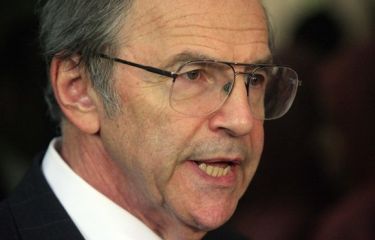Sudan’s violence impedes normalization process – US envoy
December 15, 2011 (WASHINGTON) — US Administration has clearly informed Khartoum that bilateral relations cannot be improved unless they end violence in Blue Nile and South Kordofan and allow humanitarian access to the affected population, Obama’s special envoy said this week.

On 20 November, White House Deputy National Security Adviser, Denis McDonough, met with Sudanese foreign minister Ali Karti. The senior aide to United States President Barack Obama requested to allow aid groups to work in the two troubled regions and discussed pending issues with South Sudan.
Princeton Lyman on Tuesday 13 December admitted the violence in Blue Nile and South Kordofan hampered the implementation of a road map to improve relations with Sudan. He further said they made it clear to Khartoum that no progress can be achieved if they continue “bombing civilians and denying humanitarian access”.
“What we’re saying is this is no time to go to war in three or four of the states of your country, Southern Kordofan, Blue Nile, Darfur, et cetera. And it is important to get a negotiated solution to the oil sector with the South,” he stressed.
Speaking to the press to announce a conference for South Sudan development, Lyman further said that they “very strongly” advised Juba to stop its support to the Sudanese rebels in the two areas but pointed out that they “are not putting conditions on the aid packages” to the South.
Sudan is designed as State Sponsor of Terrorism on 12 August 1993. This year the President Obama kept it on the list despite Khartoum’s full cooperating on the anti-terror, as US official admit. The country also under economic and trade sanctions since 3 November 1997 for its alleged support to terrorist groups.
The left of sanctions continues to be the main file of talks between the two countries. Washington since the signing of 2005 peace deal pledges to remove it but the issue was successively delayed by Darfur conflict, implementation of the peace deal with the South, and the recent conflict in Blue Nile and South Kordofan.
Last June after the start of clashes in South Kordofan President Obama said a cease-fire in South Kordofan and an agreement on Abyei peacekeepers are necessary to put the normalization process back on track.
“But without these actions, the roadmap for better relations with [the Sudanese government] cannot be carried forward,” he said.
Lyman who calls for a negotiated settlement for the armed conflict in the two regions pressed the Sudan People’s Liberation Movement-North to resume talks with Khartoum and to focus on the implementation of peace protocol related to the two regions particularly the popular consultations.
He also disapproved an alliance between SPLM-N and Darfur rebels to overthrow the regime of President Omer al-Bashir urging them to hold separate talks with Khartoum to end the two conflicts
(ST)
